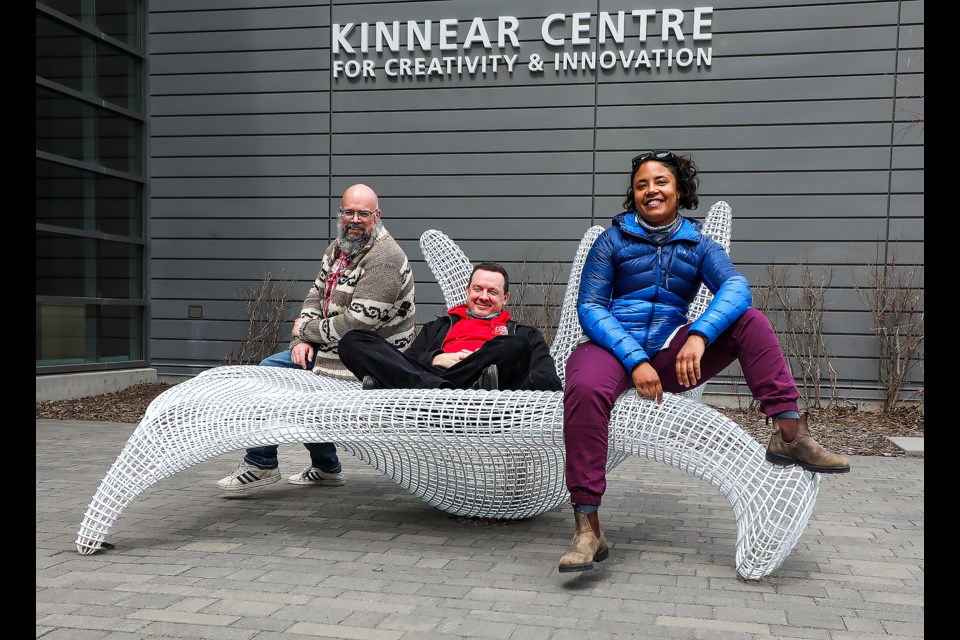Computing and literary arts aren't two things that often go hand in hand.
But a Banff Centre residency dedicated to digital and computational writing is allowing writers to explore the collaborative space between human authors and computer programs. The residency began April 25 and runs to May 7.
"As literary arts, I want to feature programs that help writers with their existing practice," said Derek Beaulieu, the Banff Centre's literary arts director. "I also want to make sure that we are looking at some areas that are more unusual and challenging, both for the writers and for the audience. I feel it's my responsibility here to bring some of the edges of writing to the forefront. Computational writing residency was my crazy idea.
"I'm excited to host this residency because the writers and the faculty are coming up with things that I don't recognize. Computational writing is, to me, that's very exciting. That shows me I read and write because I want to be surprised, and I want to be presented with things I didn't see coming. "
The program has authors and poets Lillian-Yvonne Bertram and Nick Montfort, while Ryan Thompson – a Montreal-based publisher – is a guest speaker for the two-week program that involves 14 participants.
"Computational writing is another form of composition as a compositional tool. It's a compositional tool that helps me think about writing and language in different ways," said Bertram.
Bertram said humans rely on computers for nearly everything in their daily lives while writing should be fun and playful. It's one of the ways writers can experiment, Bertram said.
"There's a lot of computational writing that is very game-based or has elements of a game or language games around it. And so, in that sense, it can just be fun. And I think there's a lot of value in that."
Banff Centre's computational writing residency will consider how computation writing can be meant for reflecting on writers’ writing process and processing anything from small, curated collections of words to large text corpora.
"Writers can write simpler, understandable and shareable programs, allow other people to modify them, intervene, take what writers have done, and build on it for their project," said Montfort. "It's not just one thing, but it's a convergence or intersection of different practices in computing and different practices in writing and poetry in my case."
Montfort said this insight informs writers' understanding of computation in literature and enriches writers' notion of writing.
“Human artists and computer programs collaborate to write literature; this is a unique topic," said Beaulieu. "And it also pushes the boundaries of how we understand what poetry and fiction can be. We also want to push those writers to think differently, come up with something new, and push the practice of writing into the future,” Derek Beaulieu, Banff Centre’s Literary Arts Director, said.
Beaulieu stressed that computational writing is not about eradicating the human or not allowing personality to come through in poetry.
“Writers have to program the program; writers have to tell them how to write, create this work, and generate this conversation. Computational writing is a dialogue between writers and the computer tool," he said.
Bertram and Montfort agreed humans will still be at the centre of the technological breakthroughs, propped up by artificial computer intelligence, and coexistence and collaboration between human artists and computer programs remain a core value.
"Students sometimes ask if this means that I'm giving up all control over my writing. If a computer's going to do it, I'm just going to press a button, and a computer will generate a poem," Bertram said. "And once they start to get into it, they realize if they're the ones writing the program, and writing the code, that's their creative expression, they have to come up with an idea."
Montfort noted how getting together as a group to explore computational writing will broaden the discussion.
"To gather with other computational writers and work to figure out how this Banff Centre residency practice can be meaningful for us, our literature, cultures, and arts is an extraordinary opportunity," he said.




